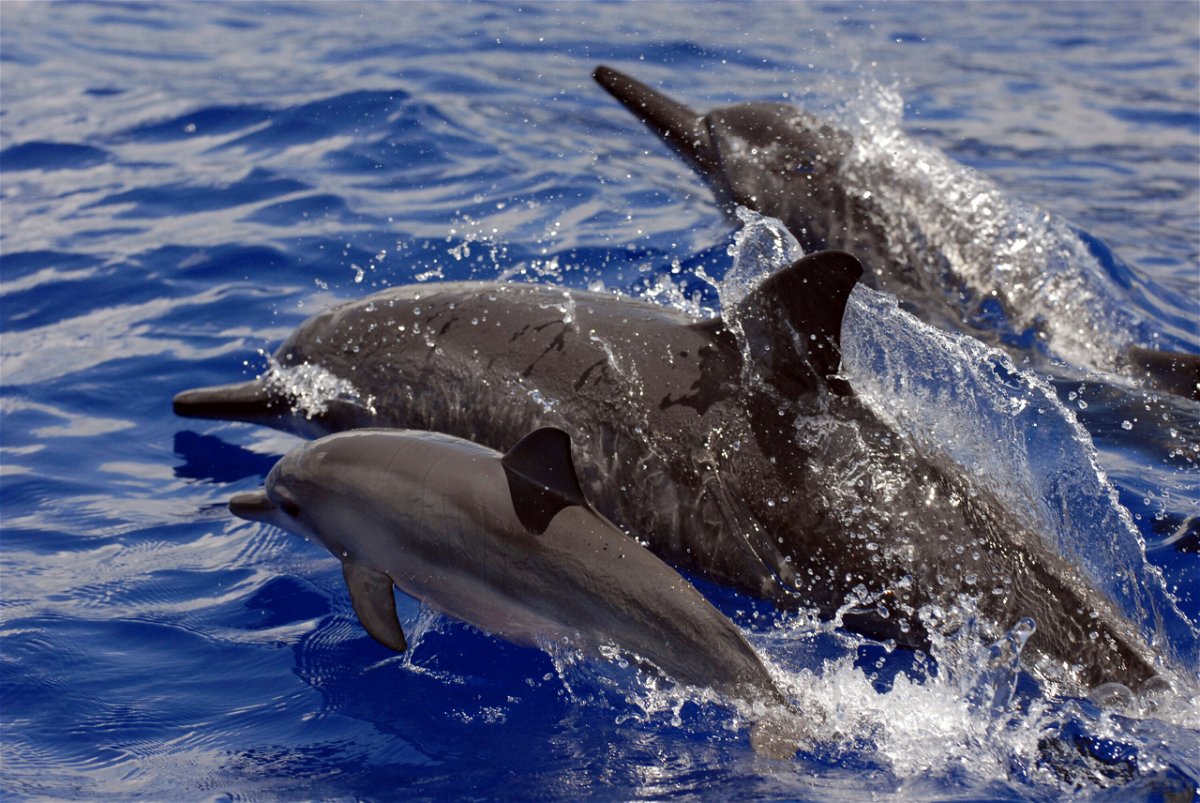Swimming with Hawaii’s spinner dolphins is now banned

Spinner dolphins swimming in Hawaii.
By Amanda Jackson, CNN
Hawaii residents and tourists will no longer be able to swim or get in close contact with Hawaiian spinner dolphins, according to a new rule by National Oceanic and Atmospheric Administration (NOAA).
The rule has been years in the making, as biologists have long noticed that the playful mammals have been stressed by human interactions. The nocturnal animal is known to frequent the waters close to shore during the day while they rest and nurture their young.
Spinner dolphins inhabit tropical waters around the globe and are a member of the toothed whale family. These slim, agile, gray and white dolphins are most famous for leaping out of the ocean and spinning in circles in the air. Hawaiian spinner dolphins are a subspecies found throughout the island chain.
The new rule was announced on Tuesday and falls under the Marine Mammal Protection Act, which prohibits the harassment of spinner dolphins. The rule prohibits people and vessels from coming within 50 yards of the mammal.
“During the day, they’re resting in near-shore waters, so it makes them very vulnerable to dolphin-directed activities,” Ann Garrett, assistant regional administrator for the National Marine Fisheries Service, said in 2016 when the rule was proposed.
“They may abandon their habitat and have increasing health problems. We can’t function as well as we could with a good night’s sleep, same with dolphins,” she added. “Over time, their health may be impacted. They may not nurture young as well. They may abandon their young or habitat, and they may suffer long-term population impacts.”
NOAA says dolphin and wildlife tours can continue as long as people stay away from the mammal. If a person inadvertently gets too close to a spinner dolphin or the dolphin approaches them, NOAA says you must make no effort to engage or pursue the animal, and take immediate steps to move away.
The-CNN-Wire
™ & © 2021 Cable News Network, Inc., a WarnerMedia Company. All rights reserved.
CNN’s Karan Olson and Brianna Randall contributed to this report.